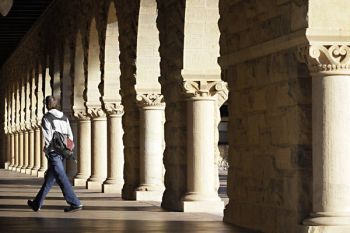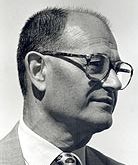
Publisher:
Bonnie King
CONTACT:
Newsroom@Salem-news.com
Advertising:
Adsales@Salem-news.com

~Truth~
~Justice~
~Peace~
TJP
Dec-10-2012 01:39

 TweetFollow @OregonNews
TweetFollow @OregonNews
88% of Citizens' Support for Chapels at Public Universities
Clemente Ferrer Roselló Salem-News.comPublic spaces belong to everybody and not just to the State...
 Special thanks TO Christian Science Monitor |
(MADRID) - The newspaper El Pais started in Spain a campaign to open an outdated discussion, with the following question: Did you support chapels at public universities? Many people answered and the result was that an overwhelming 88% said yes and 12% said no.
Why did university chapels bother? There are university choirs, theaters, cinema and audiovisual classrooms. In many universities one can find bars, kiosks, travel agencies and banking offices. These are some of the services that public universities did offer to their students. Some universities have chapels, which recently had to face controversies with embarrassing incidents in places of great tradition. The argument that publicly owned property must be non-religious, ie lay, is used to try to ban the chapels.
When an airport or a public university has a chapel, this place did not become "religious" -much less confessional-, in the same way as a public administration does not adhere to the culinary tastes of a gastronomic club which receives public protection. This help try to meet the interests of users, in the chapels' instance because many people have a religious identity and request those services. So even the most secularist newspaper in Spain failed with its survey.
Public spaces belong to everybody and not just to the State, even if they are state property. Therefore, their users will provide a specific climate, where everyone can exercise their rights. As these spaces are essentially plural, neutrality can not imply a neutralizing asepsis imposed on their users. The state acts as impartial guarantor, seeking to satisfy the legitimate citizen requests in proportion to the demand. Thus the European Court of Human Rights ruled that the dislike caused by the presence of a crucifix in a classroom, is a subjective perception of the complainant, and is enough to talk of a violation of his freedom of ideology and his beliefs. The presence of a chapel does not force anyone to take a creed or religious practice.
If a government decides to ban the chapels at public universities, or refuses to assign sites to build temples, etc, no one could doubt that such decisions would be secularist or laicist, but they certainly would not be neutral decisions, and therefore no one could argue that they are requirements of the non-denominationalism of the State.

Author and journalist Clemente Ferrer Roselló, a prestigious Spanish advertising character, presents a fascinating personal and professional career fully devoted to the world of communication in its varied dimensions. He earned a PhD in Information Sciences from the Universidad Complutense de Madrid, BA in Advertising from the Universidad Autonoma de Barcelona Master in Marketing from the School of Marketing Studies in Madrid.
He has been Associate Professor of Business Management at the Faculty of Economics and Business, University of Navarra and a contributor to the Madrid daily ABC. He also spent several years teaching, both in the Official School of Advertising as the School of Information Sciences at the Complutense University of Madrid. In 1985 he was awarded the Gold Master, granted by the Senior Management Forum and AMPE Prize 1996 to the "long and brilliant career advertising."
 |
 |
 |
Articles for December 9, 2012 | Articles for December 10, 2012 | Articles for December 11, 2012
Quick Links
DINING
Willamette UniversityGoudy Commons Cafe
Dine on the Queen
Willamette Queen Sternwheeler
MUST SEE SALEM
Oregon Capitol ToursCapitol History Gateway
Willamette River Ride
Willamette Queen Sternwheeler
Historic Home Tours:
Deepwood Museum
The Bush House
Gaiety Hollow Garden
AUCTIONS - APPRAISALS
Auction Masters & AppraisalsCONSTRUCTION SERVICES
Roofing and ContractingSheridan, Ore.
ONLINE SHOPPING
Special Occasion DressesAdvertise with Salem-News
Contact:AdSales@Salem-News.com

googlec507860f6901db00.html



Terms of Service | Privacy Policy
All comments and messages are approved by people and self promotional links or unacceptable comments are denied.
[Return to Top]
©2025 Salem-News.com. All opinions expressed in this article are those of the author and do not necessarily reflect those of Salem-News.com.